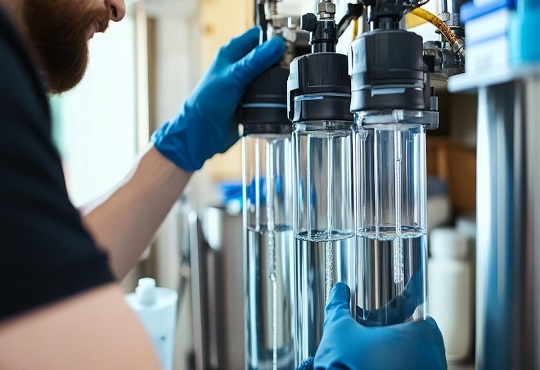IIT Guwahati Develops Tech to Treat 1,000 Litres Wastewater at Rs 20
CIOTech Outlook Team | Thursday, 19 June 2025, 12:59 IST

- IIT Guwahati’s method purifies 1,000L of water for just ?20.
- Removes 94% iron and 89% fluoride; lasts up to 15 years.
- Technology deployed in Assam; eco-friendly upgrades planned.
The chemical engineering department at the Indian Institute of Technology (IIT) Guwahati has discovered an affordable method for purifying polluted groundwater. The four-step approach has demonstrated effectiveness in eliminating 94% of iron and 89% of fluoride from wastewater, ensuring the water quality meets Indian safety standards.
The main aspect of this study was that it needed just Rs 20 to purify 1,000 litres of water. The innovative technology can purify up to 20,000 litres of water daily. It has an estimated lifespan of 15 years, with electrode replacements approximately every six months.
The results of this study, conducted over a span of 12 weeks, have been released in the ACS ES&T Water journal. The article is written collaboratively by the research group from the chemical engineering department - Mihir Kumar Purkait, faculty member; Anweshan and Piyal Mondal, post-doctoral researchers; and Mukesh Bharti, research student.
In partnership with the public health engineering department of Assam, Kakati Engineering Private Limited has implemented this technology in Changsari, Assam.
Also Read: 10 Most Promising Innovative Startups in Water Technology Solutions - 2025
Fluoride is a frequently detected water pollutant in Rajasthan, Telangana, Andhra Pradesh, Karnataka, Haryana, and Gujarat. According to a statement, it can reach groundwater either naturally or via human activities such as agriculture or manufacturing. Excessive fluoride intake from water can result in skeletal fluorosis, a condition where joints become rigid and movement is painful, according to the statement.
“We are also exploring the use of solar or wind power to operate the unit and to utilise the hydrogen gas generated during electrocoagulation process,” said Purkait, discussing the project’s potential.




